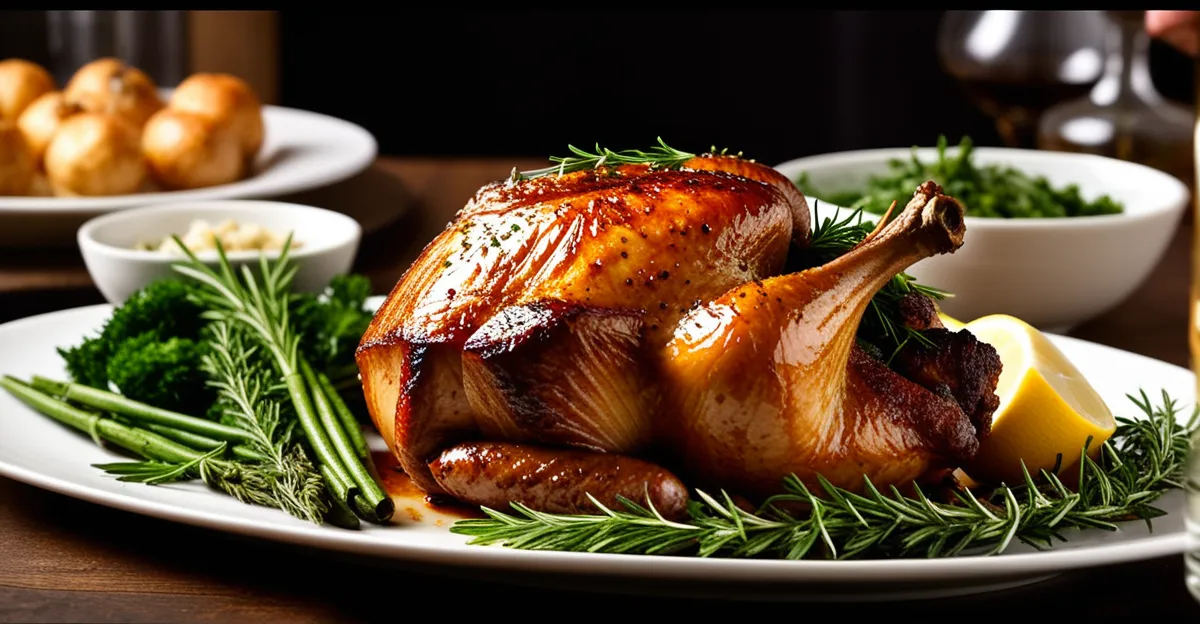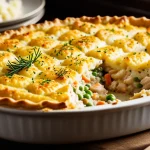Essential Herbs to Elevate a Roast Dinner
Discovering the best herbs for roast dinners unlocks a world of rich flavors and aromas. Rosemary, thyme, and sage stand as classics, each bringing unique qualities that enhance your roast dinner flavor. Rosemary’s pine-like fragrance cuts through rich meats like lamb and beef, creating a robust complement to intense flavors. Thyme offers a subtler, earthy note ideal for poultry and root vegetables, lending depth without overpowering the dish. Sage’s slightly peppery and savory tones shine with pork and roasted vegetables, adding warmth and complexity.
These herbs are not just ingredients but roast dinner seasoning essentials. They work in harmony to amplify the overall taste. A classic pairing like rosemary and garlic works wonders for lamb, while thyme with lemon brightens roast chicken perfectly. Sage combined with onions elevates pork dishes tastefully.
Also to discover : How do you prepare a comforting and traditional fish pie?
Using these herbs together ensures balanced flavors, tailoring each roast to highlight its natural profile. Understanding their individual roles lets you create nuanced, memorable meals. Whether fresh or dried, these core herbs form the foundation of any successful roast dinner seasoning strategy, making meals satisfying and flavorful.
How to Use Herbs Effectively in Roast Dinners
Maximising aroma and taste through technique
Have you seen this : How can you make a classic shepherd’s pie from scratch?
Knowing how to use herbs properly can transform your roast dinner seasoning into a culinary masterpiece. The choice between fresh and dried herbs is crucial. Fresh herbs offer vibrancy and delicate aroma, best added towards the end of cooking or as a garnish to preserve their brightness. In contrast, dried herbs are ideal for longer roasting times as their flavours concentrate and infuse deeply into meats and vegetables.
Timing is equally important. Adding herbs early enables them to release essential oils and enhances the roast dinner flavor thoroughly. For example, rubbing dried rosemary on lamb before roasting allows the herb to penetrate the meat, creating a rich, layered taste. Conversely, delicate herbs like thyme can be scattered halfway through roasting to prevent bitterness.
Simple herb blends can elevate your seasoning effortlessly. Combining rosemary, sage, and thyme into a rub for pork or beef creates a balanced and aromatic profile, intensifying the natural flavors without overpowering them. For vegetables, mixing herbs with olive oil before roasting imparts a subtle herbal note that complements the caramelization.
Understanding how to use herbs—from fresh versus dried to timing and blends—ensures your roast dinners are perfectly seasoned, impressing with both aroma and taste.
Herb Pairings by Roast Type
Finding the perfect herbs for each roast enhances every bite
Choosing the right roast beef herbs, roast chicken herbs, or blends for other meats is essential for balancing robust and delicate flavors. For roast beef, hearty herbs like rosemary and thyme stand out. Rosemary’s bold, pine-like scent pairs perfectly with the rich flavor of beef, while thyme adds an earthy undertone without overwhelming the palate. Adding crushed garlic and black pepper complements this duo, creating a traditional and satisfying roast dinner flavor.
When it comes to herb pairings for roast chicken, lighter and more aromatic profiles succeed. Thyme shines with poultry, offering subtle earthiness that complements the meat’s mild nature. Sage enhances roast chicken’s savoriness with its warm, peppery notes, making these herbs the ideal companions. Lemon zest combined with these herbs brightens the dish further, adding freshness.
For lamb and pork, sage and rosemary work beautifully. Sage brings warmth and a slightly peppery edge to pork, while rosemary’s intense fragrance elevates lamb. These classic herb combinations highlight the unique character of each meat.
Vegetarian roasts benefit from blends focusing on rosemary, sage, and thyme, balancing herbal depth with the natural sweetness of root vegetables, ensuring a flavourful, well-rounded roast dinner seasoning.
Practical Tips for Enhancing Roast Dinners with Herbs
Finessing your seasoning for a better roast dinner
When aiming to improve roast dinner flavor, certain seasoning tips can make a significant difference. Overusing strong herbs like rosemary or sage can overpower a dish, so balancing robust herbs with subtle ones like thyme is key. This ensures a harmonious blend that highlights rather than masks the roast’s natural taste.
A common mistake is adding delicate fresh herbs too early. To avoid bitterness, reserve fresh herbs for garnishing or addition near the end of roasting. Dried herbs, being more concentrated, suit longer cooking times and infusing flavors deeply into meats or vegetables.
Creative infusions offer a fresh dimension. Stuffings mixed with fresh herbs or herb-infused oils brushed onto meat before roasting add nuanced aromas and enrich the overall seasoning. For instance, combining chopped sage, thyme, and garlic in a butter rub adds layers of flavor during roasting.
Applying herbs thoughtfully—balancing strength, selecting timing properly, and exploring innovative uses—empowers cooks to craft a better roast dinner, delivering memorable flavors every time.








